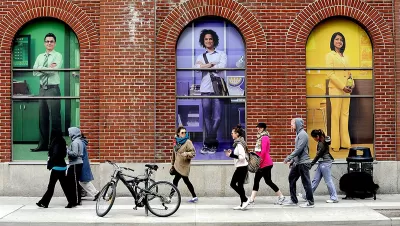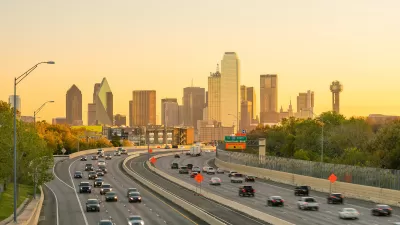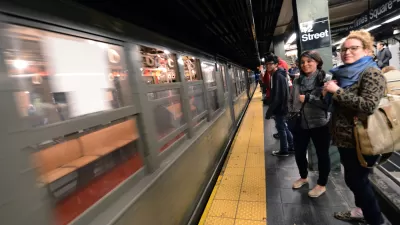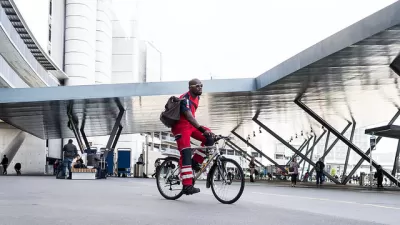Many planners say they want to try out active commutes when in-office work becomes possible. How will a fresh look at their local streets influence planning professionals and planning practice?

A survey of 1,000 planning professionals conducted by Kittelson & Associates asked whether remote work has changed preferences about commuting to work. A surprising number of workers in government and the built environment professions want to try an active commute once they return to the office post-pandemic the survey finds—a change in habits that might reduce the widespread windshield bias that has subtly shaped city decision making for generations.
"Like several broader studies have found, many respondents remain shy of returning to public transportation, but 23 percent of workers who previously took transit every day indicated that they plan to try a bike, walk, or other active commute once they can return to the workplace — compared to about 18 percent that will commute solo by car," writes Kea Wilson.
Equally important, 44 percent of survey respondents said they would opt for biking or walking over mass transit commutes in the future. Only .5 percent of Americans in the transportation industry chose active commuting in 2014, according to an American Community Survey survey.
"One thing’s for sure: if all these powerful people actually make good on their intentions to try walking, biking, or wheeling to work, they may get a glimpse of their communities they’ve never seen before. And if they don’t like what they see, maybe they’ll start thinking about how to make our roads better for the rest of us," opines Wilson.
FULL STORY: Study: COVID-19 Might Finally Get City Planners Out of Their Cars

Planetizen Federal Action Tracker
A weekly monitor of how Trump’s orders and actions are impacting planners and planning in America.

Maui's Vacation Rental Debate Turns Ugly
Verbal attacks, misinformation campaigns and fistfights plague a high-stakes debate to convert thousands of vacation rentals into long-term housing.

Restaurant Patios Were a Pandemic Win — Why Were They so Hard to Keep?
Social distancing requirements and changes in travel patterns prompted cities to pilot new uses for street and sidewalk space. Then it got complicated.

In California Battle of Housing vs. Environment, Housing Just Won
A new state law significantly limits the power of CEQA, an environmental review law that served as a powerful tool for blocking new development.

Boulder Eliminates Parking Minimums Citywide
Officials estimate the cost of building a single underground parking space at up to $100,000.

Orange County, Florida Adopts Largest US “Sprawl Repair” Code
The ‘Orange Code’ seeks to rectify decades of sprawl-inducing, car-oriented development.
Urban Design for Planners 1: Software Tools
This six-course series explores essential urban design concepts using open source software and equips planners with the tools they need to participate fully in the urban design process.
Planning for Universal Design
Learn the tools for implementing Universal Design in planning regulations.
Heyer Gruel & Associates PA
JM Goldson LLC
Custer County Colorado
City of Camden Redevelopment Agency
City of Astoria
Transportation Research & Education Center (TREC) at Portland State University
Jefferson Parish Government
Camden Redevelopment Agency
City of Claremont





























